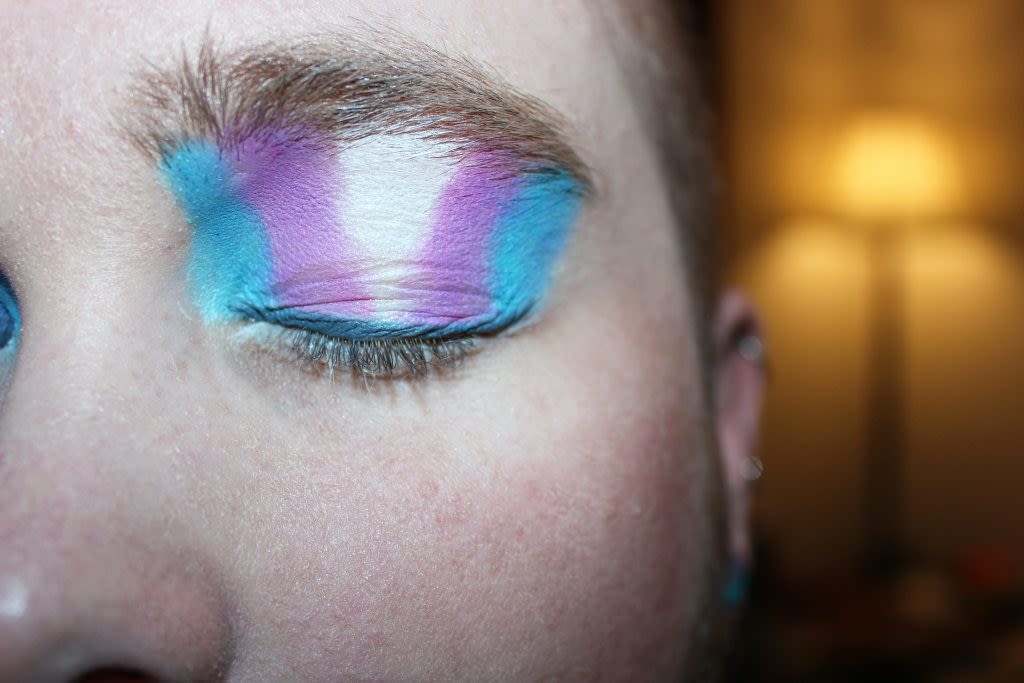COVID Transitions
The adaptability of Victoria's transgender and gender diverse community in the time of COVID-19
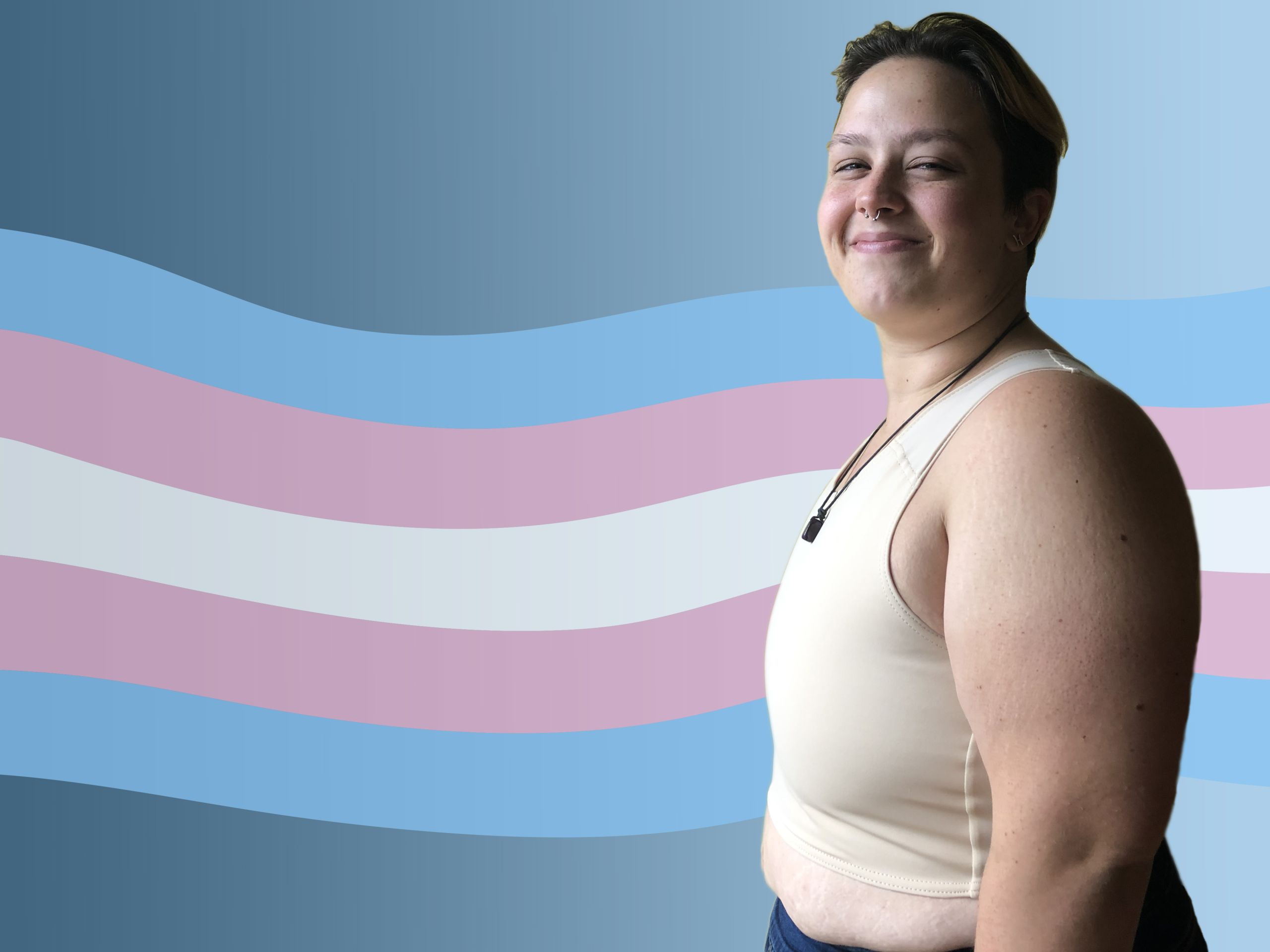
When the coronavirus pandemic hit Australia in March, the country stopped. A collective loss was felt, but communities across the nation couldn’t comfort one another in our usual ways of coming together. For transgender people, whose community is so tight-knit, who are so often ostracised from mainstream society, the changes were keenly felt.
One major change to our lives were the machinations of healthcare; entire hospital wards were dedicated to coronavirus patients to separate them from the rest of the hospital population. Visiting hours were severely limited and sometimes family members could only visit a loved-one if the illness was dire.
For many transgender people, this also meant reduced access to the healthcare they often needed to feel like themselves.
The Federal Cabinet put elective surgeries, such as plastic surgeries and gender confirmation surgeries, on hold in both public and private hospitals back in March, in anticipation of an influx of COVID-19 patients. With our eyes on Europe’s devastating first wave, it seemed likely we would need every resource available.
A Trans Pathways study of almost 900 participants found over 60 per cent of transgender people feel alienated from healthcare in some way.
Compound this with a lack of acceptance from family and friends, a heightened risk of homelessness, and healthcare bills ranging from the hundreds for hormones, to tens of thousands of dollars for surgery, and the stress of transitioning can be immense.
LGBT psychologist Grace Lee said: "It can be very isolating, the experience of exploring your gender identity and expression and not having other people to do it with. It's almost like you want to come out of the closet but actually you're kind of 'in it' all the time when you're in lockdown."
One of the ways trans people can affirm themselves without medical intervention is through their “gender presentation”, namely the ways they style their hair, clothes and makeup in line with their gender, according to Youth Development Practitioner for Queerspace, Ruby Cameron.
Queerspace was an organising partner for Melbourne’s annual Queer, Trans and GNC Clothes Swap, which was a life-raft for queer people in Victoria who couldn’t afford gender-affirming clothes, or who were just ready to change their wardrobe.
Ruby acknowledged the loss felt by the trans community when events like this were shut down earlier in the year.
“Whether it's fashion or hair or, you know, talking to other people who are in a similar kind of experience or getting more support through [Queerspace], people have been doing things differently, a little bit like experimenting with fashion differently, or changing the colour of their hair or learning how to do makeup,” Ruby said.
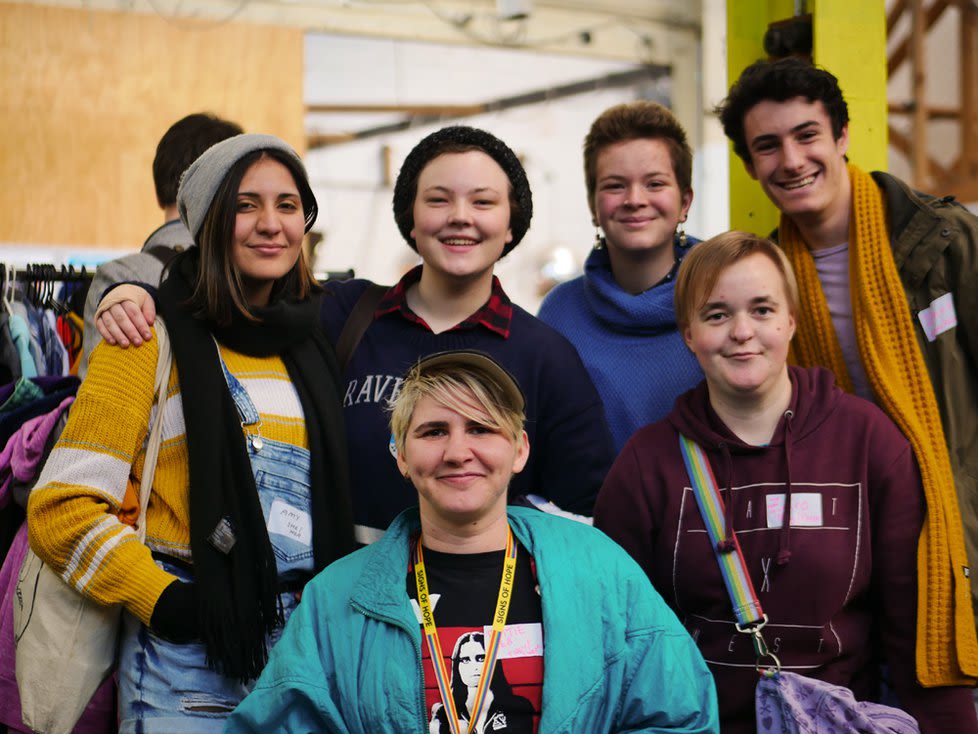
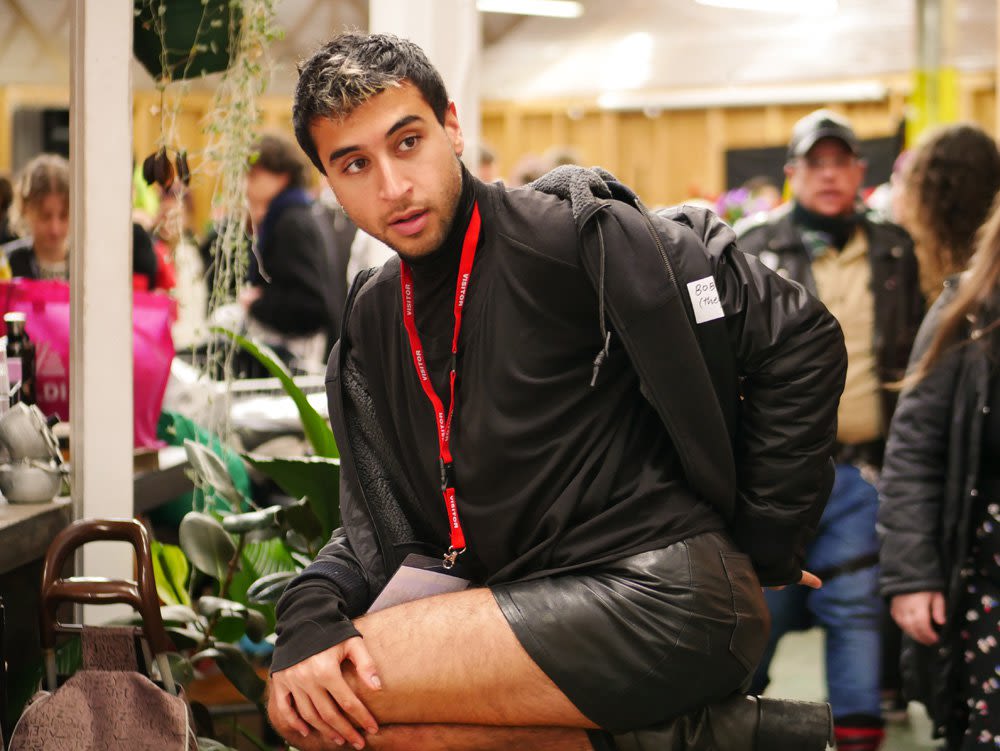
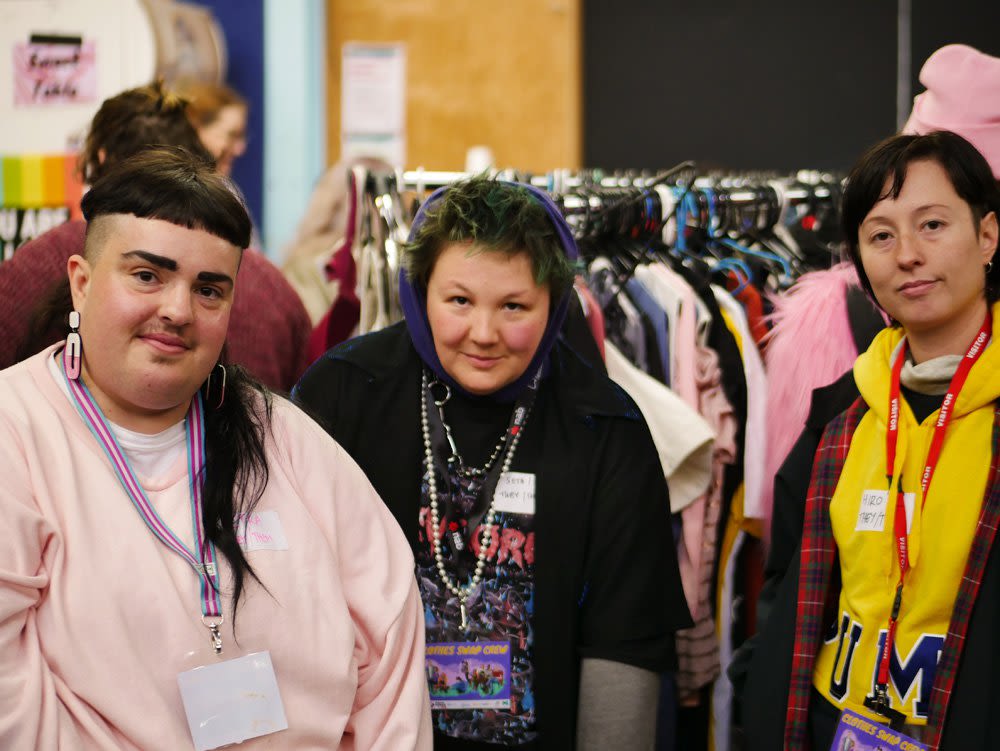
Psychologist for Equinox Gender Clinic Grace Lee said clients were embracing lockdown as a time of transformation.
“I'm seeing a lot of people who are kind of "coming out" now. The fact that they've been locked down and the fact that perhaps they've had time to reflect that they've been, you know, they're freed to an extent, by social pressures."
"They're not going to work, for example, or they're not going to go into college, or whatever it is that they've been doing. And they've had time to sort of really start to explore their own identity and expression. And so they've had a kind of freedom there."

Andy Amor is an artist and clothing designer from Victoria. They are agender and non-binary. Put fairly simply, the non-binary label is a type of transgender identity which exists as neither exclusively man nor woman. It's can be neither, or both, or something else entirely.
Being agender for most people feels like not relating to gender or not experiencing gender at all.
The way people relate to their gender can be a lot more complicated than that, but that’s the general idea.
“We're changing the world to fit in with us as opposed to us changing to fit in with these outdated ideas,” Ruby Cameron said.
Andy, who uses ‘they’ and ‘them’ pronouns to refer to themselves, started wearing binders when they came out around five or six years ago to suit their desired gender presentation.
Binders are a type of clothing which use compression techniques to flatten the chest.
Some trans people wear them most days to alleviate dysphoria or to feel more like themselves. Others might wear them only on certain days of heightened dysphoria.
They’re generally used to provide a more masculine or androgynous appearance, while there are many other items out there for trans people who want to look masculine, feminine, both, or neither.
This can be anything from packers to gaffs to everyday cosmetics and clothing.
Andy worked with their mother, “a skilled dressmaker” with decades of experience, to create a binder design which is both accessible and comfortable.
For many transmasculine, non-binary, and agender people, the discomfort - or dysphoria - of having a perceived-feminine or larger chest can be a real mental health hurdle.
Dysphoria can range from non-existent to fickle to gut-wrenching, depending on the person, the day, the hour, or the social situation. Gender presentation is a huge part of lifting the heavy weight of dysphoria for many people who can not or do not aim to access medical transition, such as surgeries and hormones.
Binders can be a life-raft for people to cope with their dysphoria or to create what some call “gender euphoria”, feelings of happiness and affirmation around their gender, but they are fairly new technology and binders or DIY binding methods of the past could do serious damage to people’s ribs and lungs.
The Australia and New Zealand Professional Association for Transgender Health outlines safe binder use as “a properly fitting binder, limiting their frequency and avoiding inflexible or adhesive tape which can cause skin irritability, pain and limitation of chest movement”.
When Andy found bags of lycra on a Rough Trade group, they set to work designing a safer, more accessible binder.
“So that's when I started making binders for other people and selling them because I had all this lycra and I needed a bit of cash.
And so that was sort of something I did to help me save for my medical expenses.
And then I decided after I'd made quite a few for different people that that was something I wanted to continue doing.”
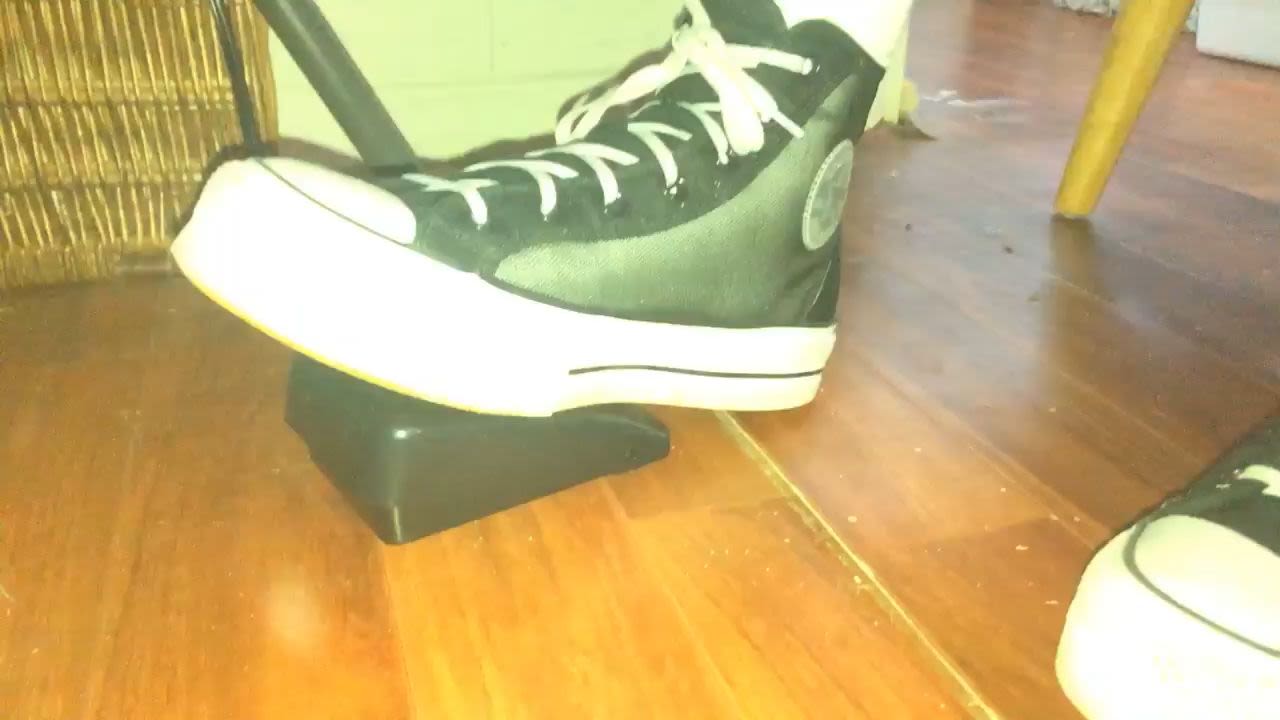
Andy first began wearing binders purchased from online stores, but quickly realised the how inaccessible they could be; many binders don't fit people with large chests. They aren't as effective on larger body types and many have annoying inside seams which can cause stress and discomfort for autistic people like Andy.
Andy’s binders are designed with plus-size and neurologically diverse trans customers in mind, with safety and comfort a high priority.
“A large percentage of the people who come to me haven't been able to find binders on the market that fit them very well or have had similar problems to me, they just find it really uncomfortable."
"And so, I have developed multiple designs now because, for example, there are some body shapes that there's literally nothing on the market that kind of fits well on them,” Andy said.
Binders can also be financially restrictive.
“Just buying one binder from overseas, often can cost one hundred dollars for someone,” Andy said.
Even then, you never know if it’s the right size and many stores don’t accept returns for change-of-mind or sizing mistakes.
Andy Amor Designs is the first of its kind in Australia - there isn’t another binder store on the continent.
“You can imagine that for someone who's low income to spend that kind of money and then wait for sometimes six weeks or more for something to arrive, it's quite depressing. So that, I suppose, signifies the need that there is to have binders here locally manufactured and locally available like this.”
It took going back to university, years of research, sewing, and a team of designers to spearhead the three new patterns which aim to fit five key body types.
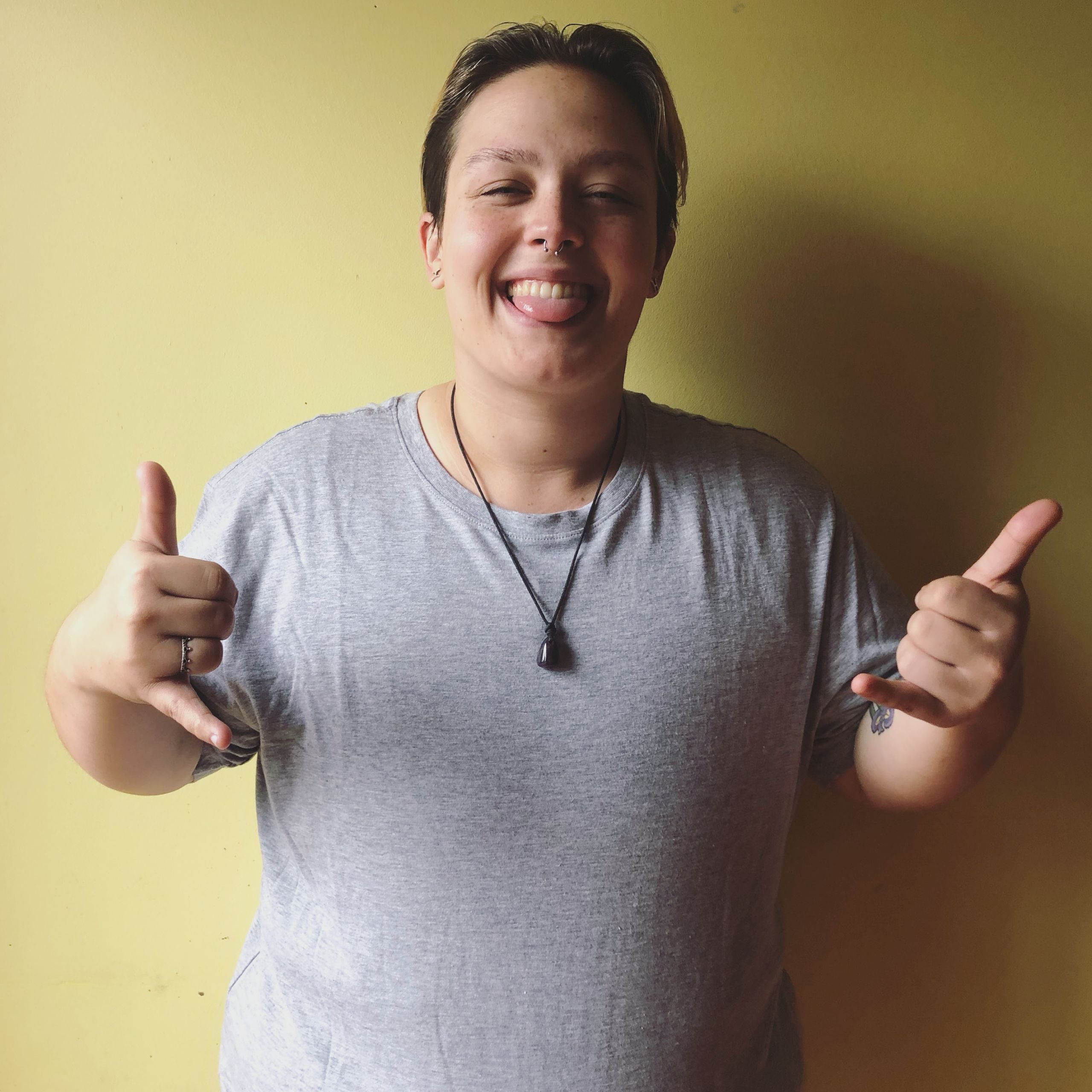
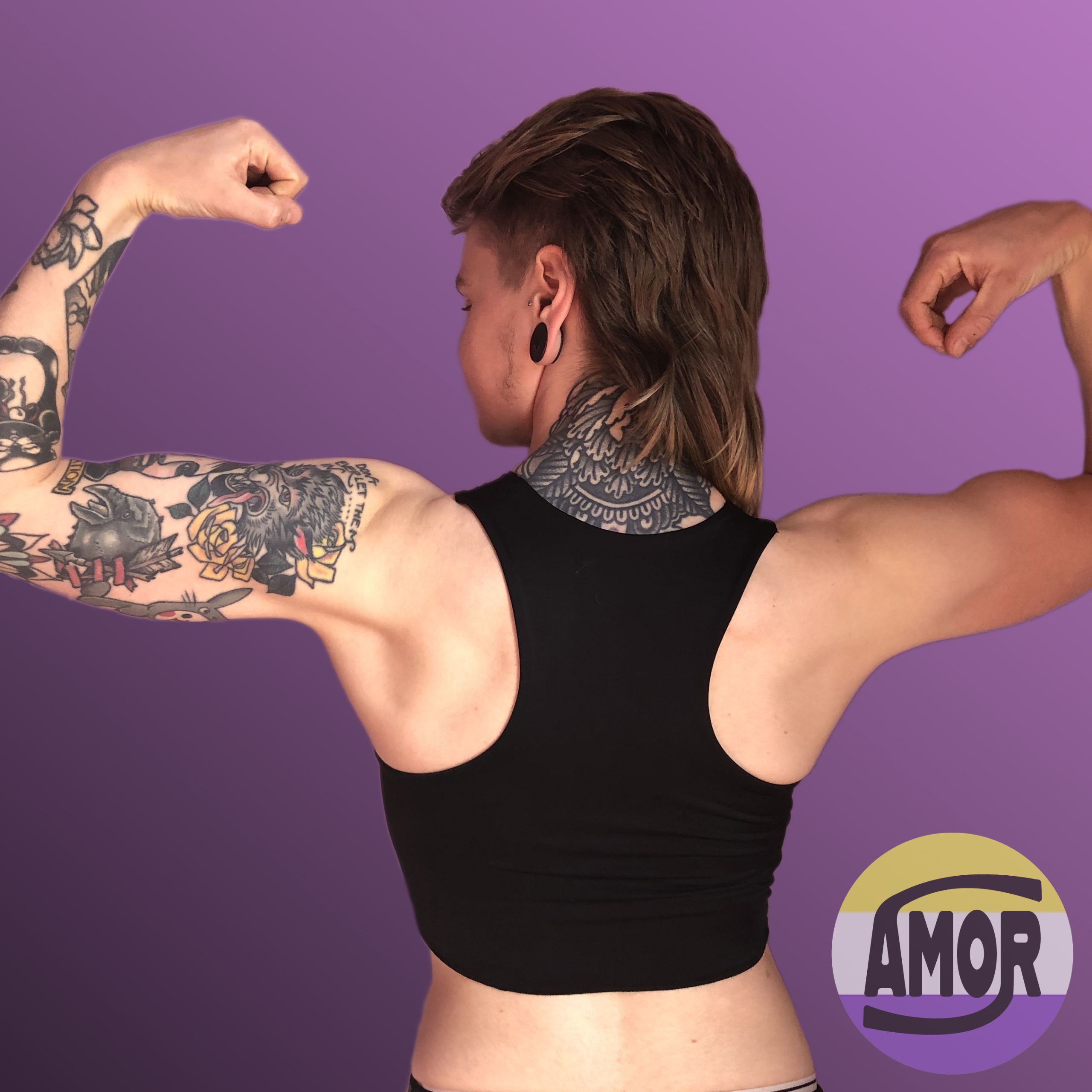
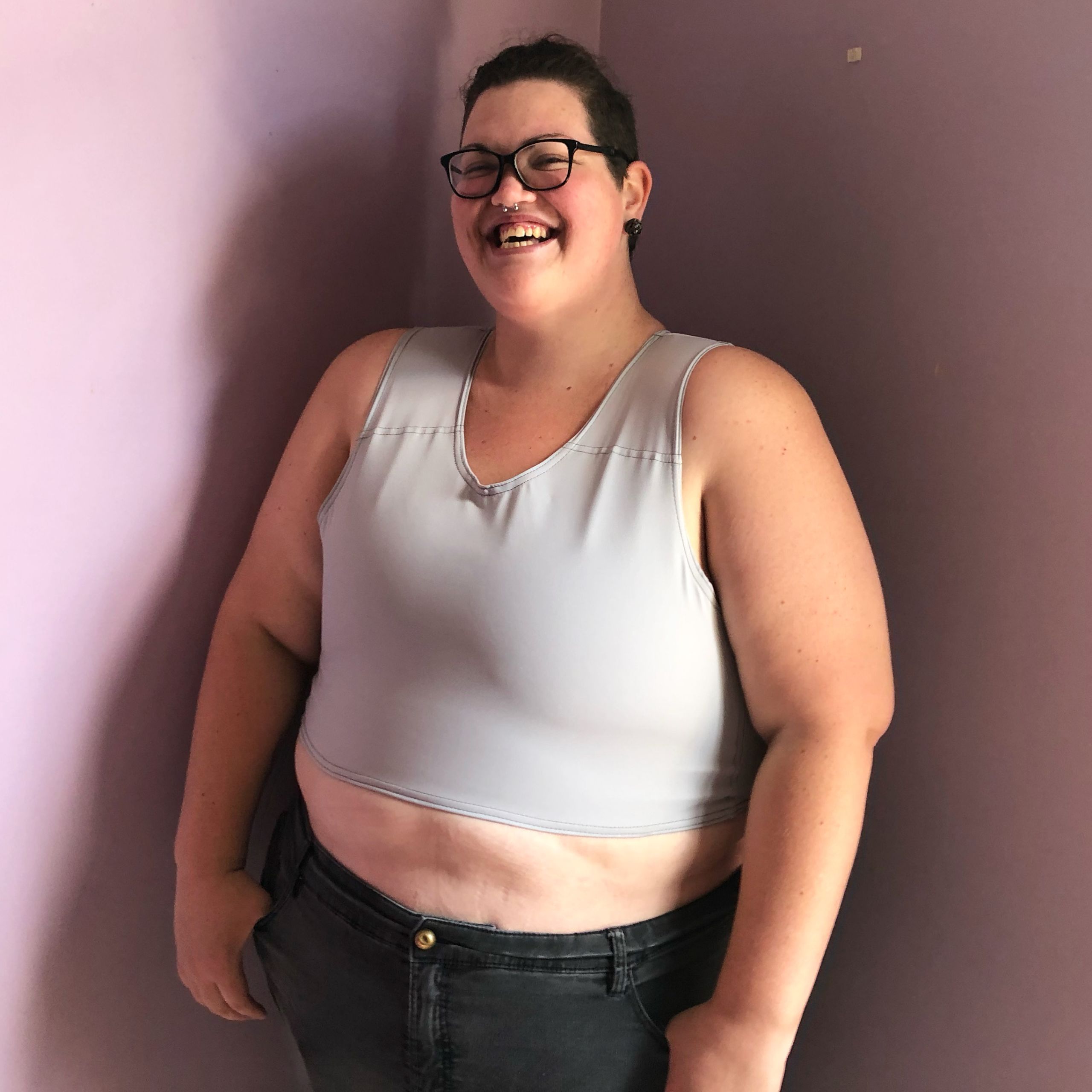
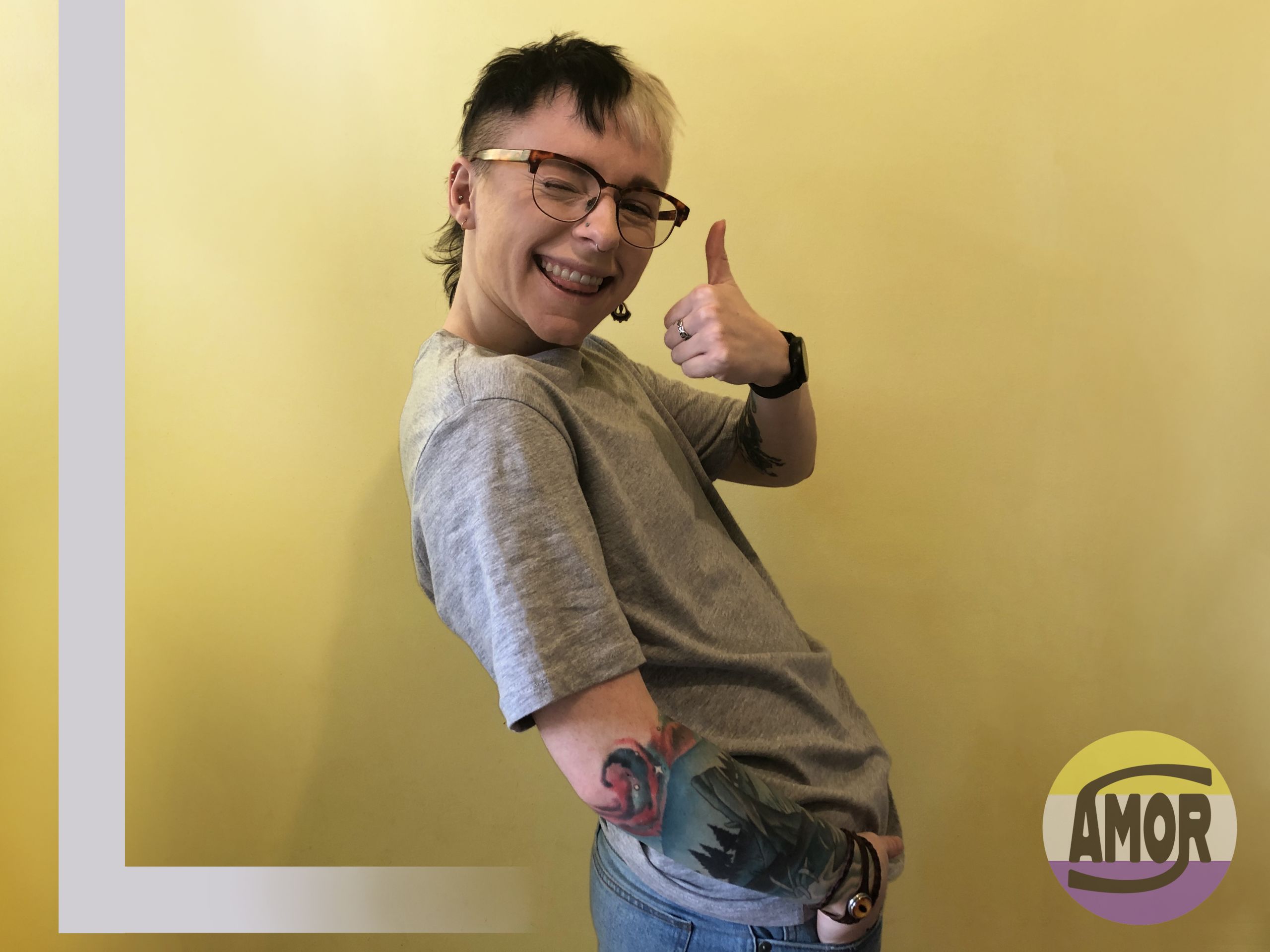
When COVID-19 brought the world to a standstill, it also halted the hard work Andy was putting into opening their business.
They moved back to regional Victoria with their family, pausing production on finding an industrial setup because of mobility restrictions between regional and metropolitan areas across the state.
These changes made the plan to move from a domestic sewing venture into a fully-fledged industrial system by January 2020 impossible.
As with many happenings of the pandemic, contradictions have been rife for Andy’s business: access to warehouse production may have diminished, but orders for binders skyrocketed once international freight slowed and elective surgeries were put on hold in March.
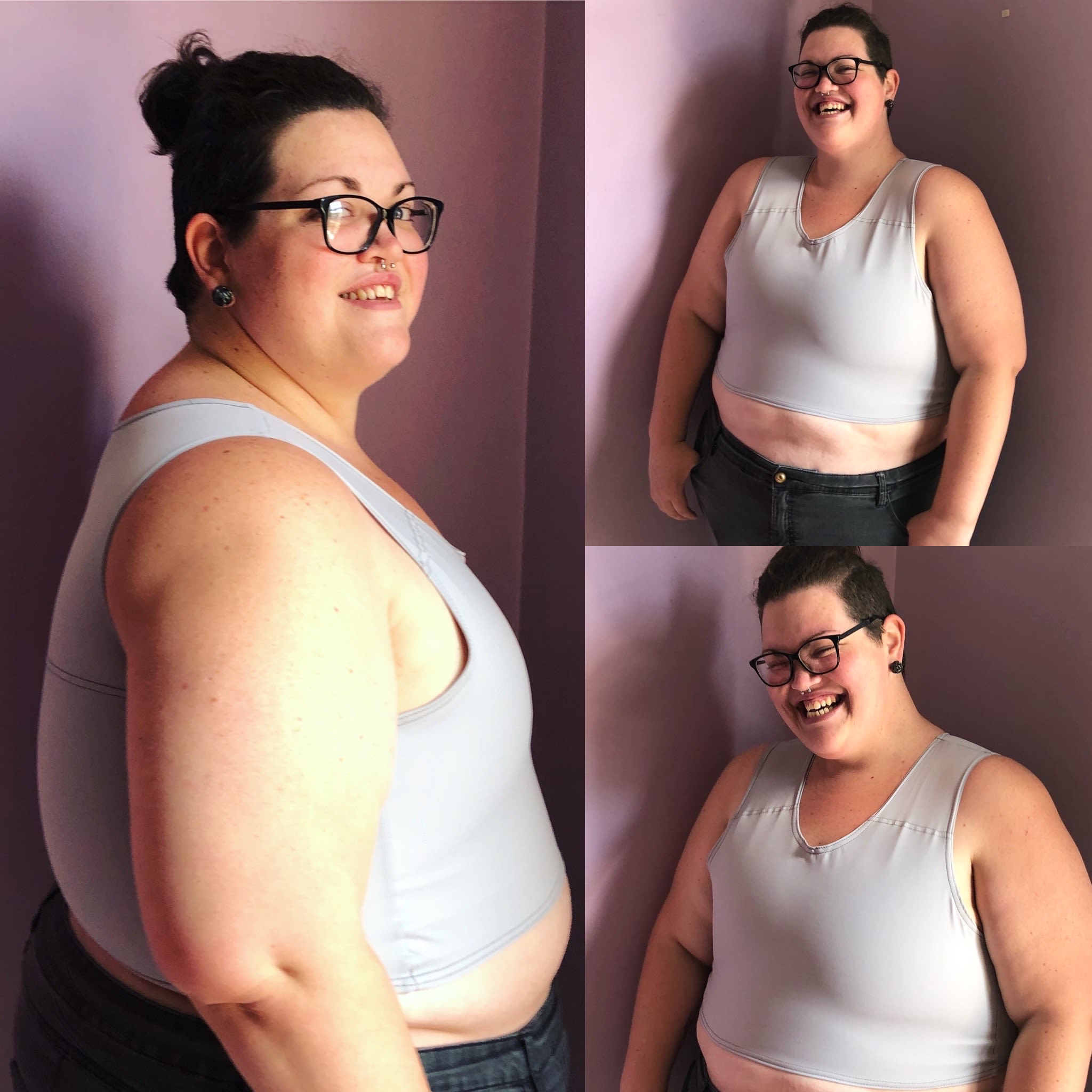
Source: Andy Amor Designs
Source: Andy Amor Designs
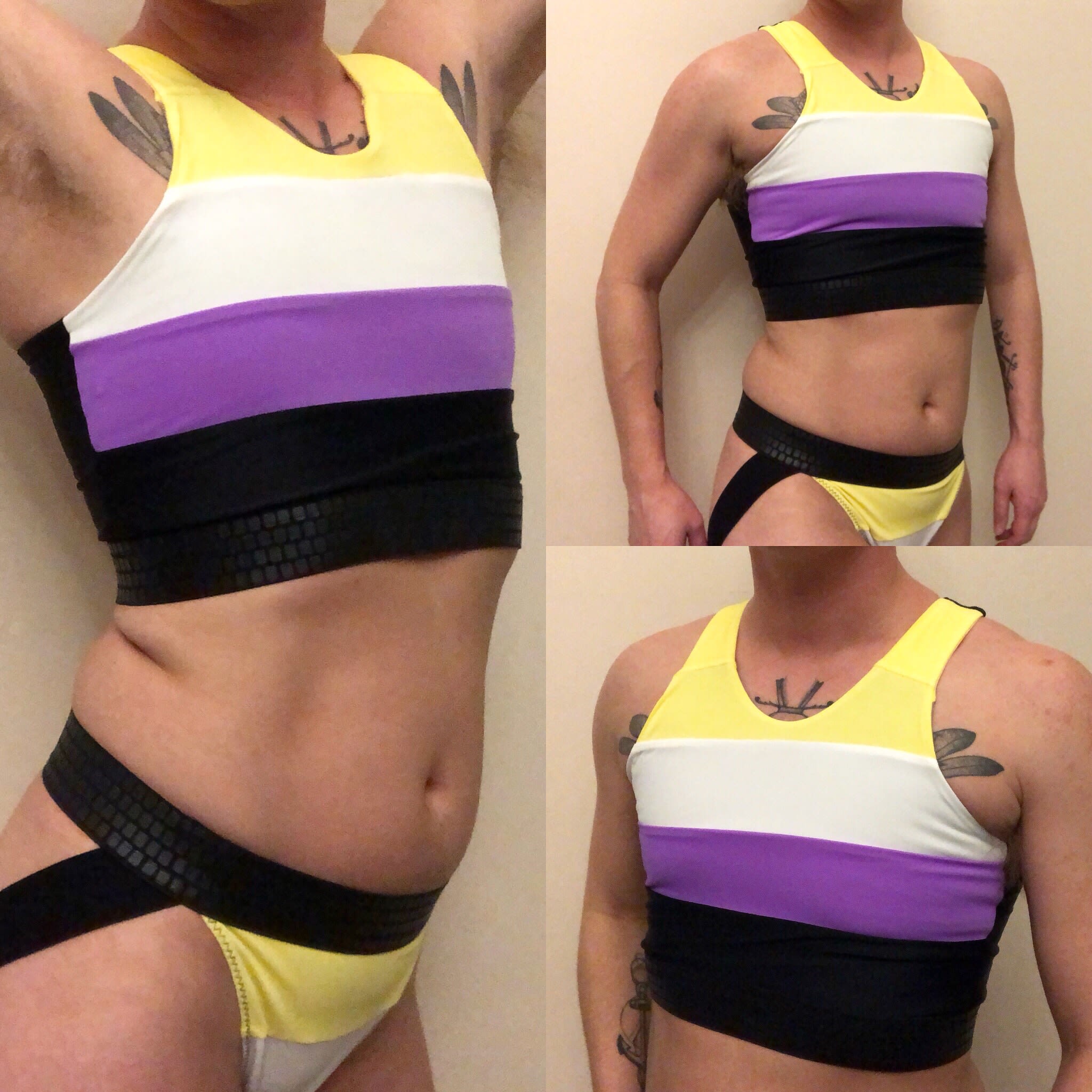
Source: Andy Amor Designs
Source: Andy Amor Designs
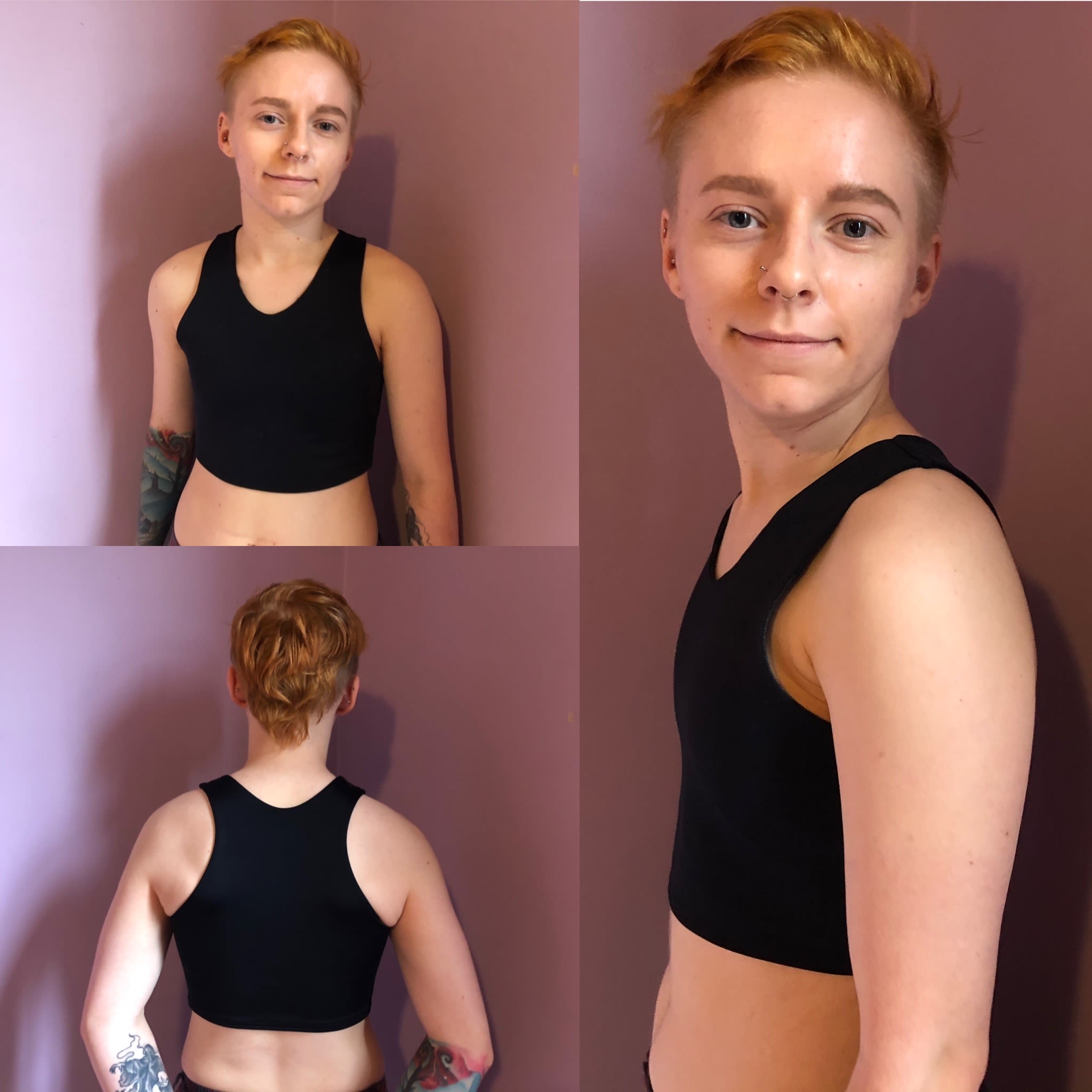
Source: Andy Amor Designs
Source: Andy Amor Designs
“Friends of mine who I've made binders for who were planning on having chest surgery this year, it's just devastating for them. And so I, particularly this year, I’ve had a lot of the people coming to me in desperation."
“And it's so hard to say no. I don't want to say no, I want to be able to help those people,“ Andy said.
Even tougher restrictions went into place while Victoria experienced it’s second wave in July, reaching peaks of over 700 cases per day.
The measures started relaxing on a state-by-state basis for most states and territories back in April. Even New South Wales has been allowing the rescheduling of elective surgeries since 1 July, despite intermittent peaks and troughs of coronavirus cases.
Victoria is only now beginning to reschedule elective surgeries for the end of 2020, now the state is reaching the tail-end of its second wave.
With an additional four to six month backlog atop the usual wait list, plastic surgeon Dr Andrew Ives said the delay caused "significant" financial and work-related distress to those patients.
Australian Medicare covers hormone replacement therapy, known as HRT, which allows trans people to use testosterone or oestrogen to alter things about their bodies such as fat distribution and hair growth, along with other changes, to reach their desired gender expressions.
The public system, however, doesn’t cover elective surgeries including transgender surgeries, which for many transgender people, can be lifesaving.
Medicare will sometimes cover a portion of trans surgeries, but there is a catch:
You have to have the right level of private health insurance, with hospital cover, and the surgeries must be found on the Medicare Benefits Schedule.
An individual has to have their cover for a year or more, since being trans is classed as a pre-existing condition.
Trans patients still have to cover General Practitioner fees, psychologist’s fees, and surgical theatre fees, among other costs dependent on their coverage.
They then need weeks off work to recover. All this, just to exist comfortably in their own skin.
The concern for psychologists, healthcare workers, and the trans community, is the severe affects these financial and time-related stressors can have on the mental health of someone experiencing severe dysphoria.
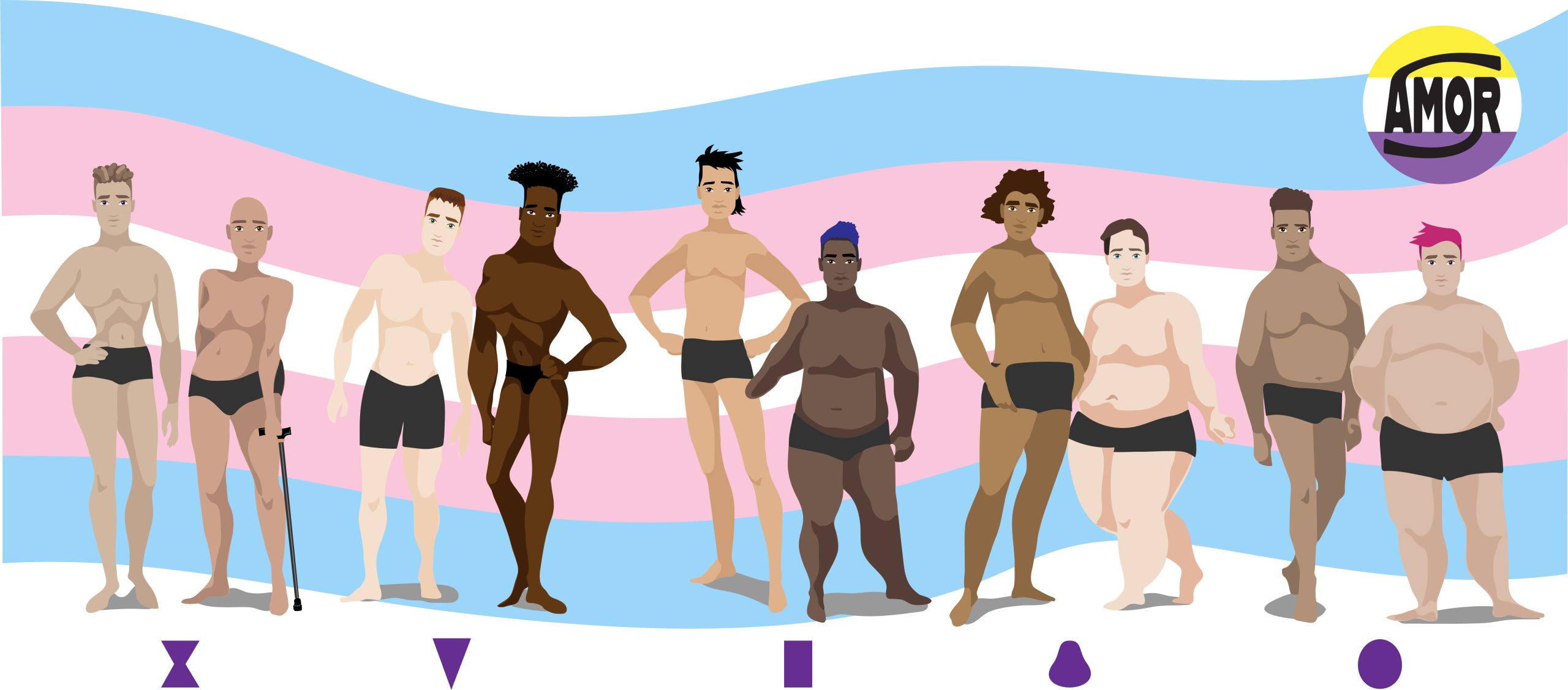
Equinox is one of Melbourne’s most renowned gender clinics, offering counselling, general healthcare, osteopathy, and endocrinology services along with referrals to other clinics and hospitals. Counsellor Grace Lee is one of their psychologists.
The entire practice moved speedily to Telehealth in just a few weeks when the office was shut.
Grace said this made her services more accessible to residents who didn’t have access to the city, but could be “quite challenging, if not dangerous” for others who couldn’t be “out” over the phone at home.
“It can be very isolating, you know, the experience of exploring your gender identity and expression, and not having other people to do it with, I mean, it's very lonely,” she said.
Ms Lee said while online events helped, queer community spaces had lost the “personal” interactions many relied on for support.
“For people to actually just go out again, and make connections is really curtailed at this point in time,” Ms Lee said.
The backlog of transgender surgeries is upwards of six months, with a wait list of even longer. Grace recognised the priority of COVID-19 patients in hospitals, but she believed the support for counselling and other interventions was inadequate. She said if people don’t have access to an internet connection for Telehealth services, they could easily “fall through the cracks”.
“I'm a firm believer that, you know, we need networks, we need connections, and especially within our own community, and for people coming out, that I'm working with, you know, a year ago, I would have been suggesting to them, join these support groups,” she said.
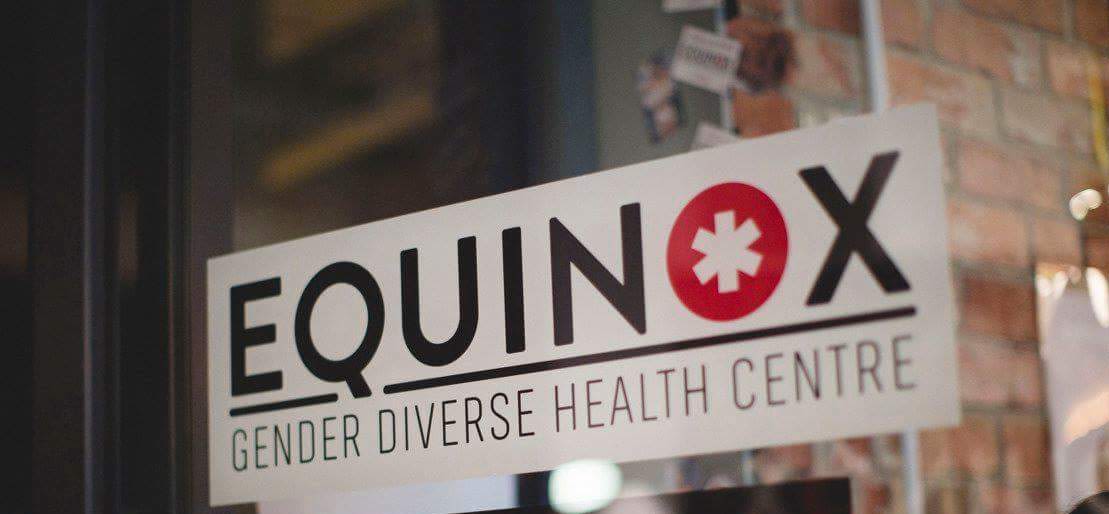
Source: equinox.org.au
Source: equinox.org.au
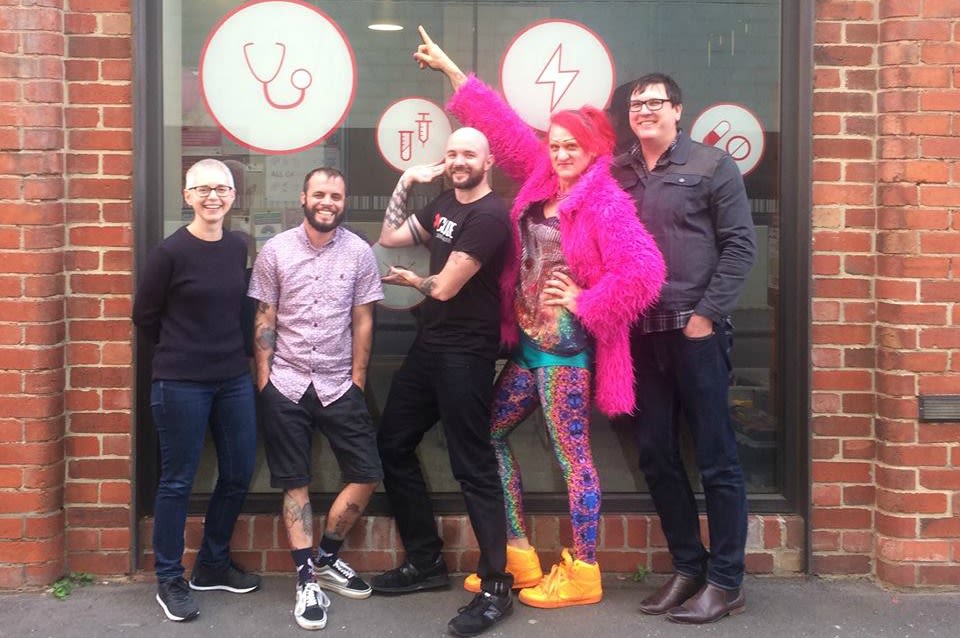
Source: Star Observer
Source: Star Observer
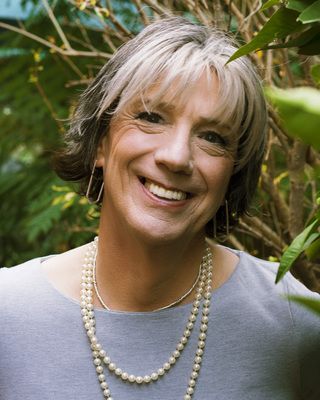
Source: Psychology Today
Source: Psychology Today
"I think that one of the things that will come out of this is we've got to sort of start to push on a national level, to get this changed and get surgeries into the public system, and get rid of the stigma,” said Sally Goldsmith of advocacy organisation Transgender Victoria.
Tennille Fleming is an LGBT+ teen who recently started a petition to get transgender surgeries covered by Medicare.
The petition, addressed to Federal Minister for Health Greg Hunt, has garnered over 35,000 of its 50,000 signature goal.
If LGBT+ healthcare isn't made more accessible soon, more transgender lives could be lost unnecessarily.
“For a lot of people, [these surgeries] are life saving and suicide prevention,” Queerspace’s Ruby Cameron.
